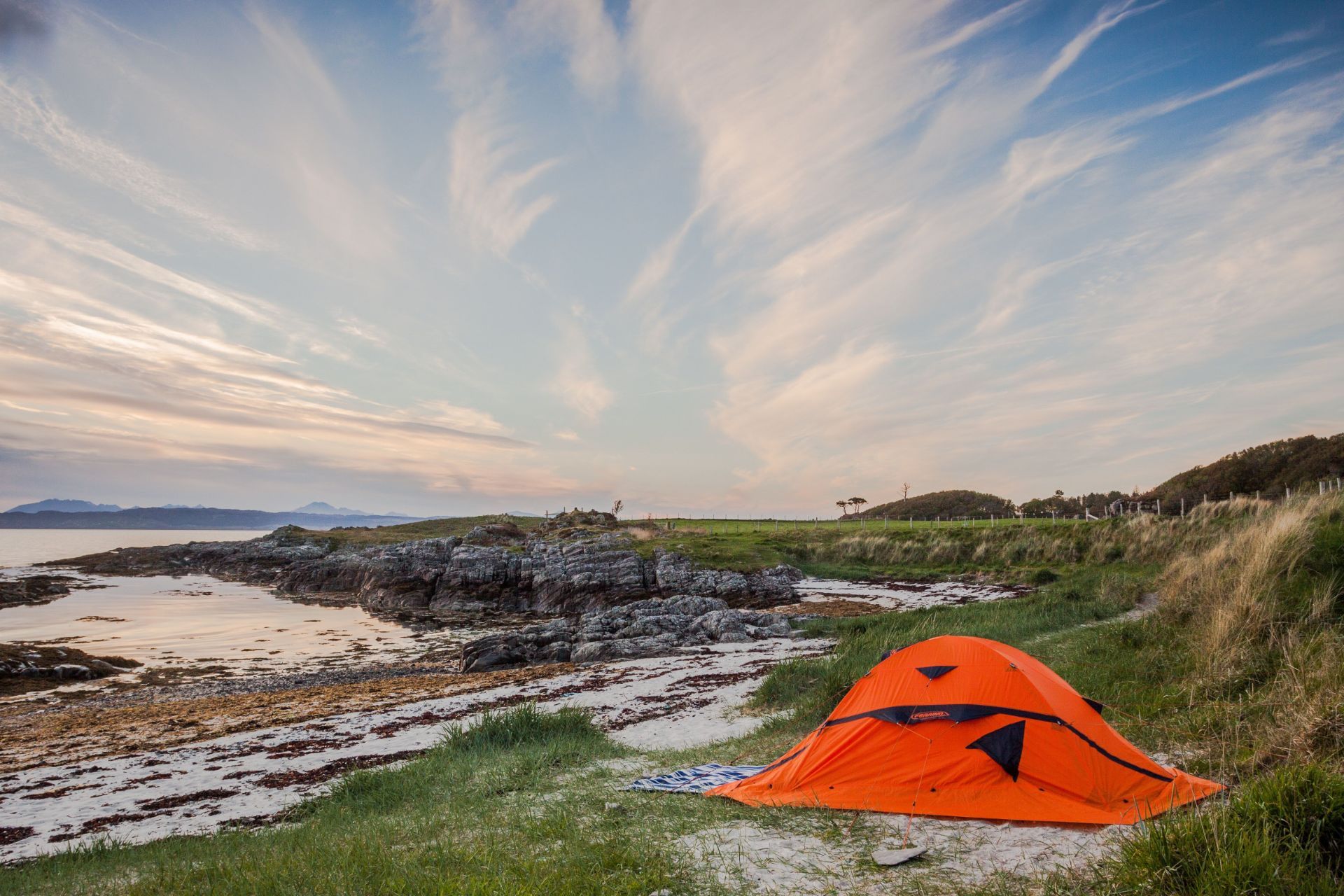
CAMPING TIPS. 8 THINGS TO KNOW BEFORE YOU GO WILD CAMPING
Let’s sleep in the tent tonight!
It’s a wonderful experience to relax under the sky full of stars or in the fragrant pine forest. But to find a suitable place for a tent while traveling can be quite difficult. A large part of our seventeen-month trip consisted of finding an appropriate camping place. As we traveled on a low budget, not always we could afford to sleep in hotels. In the largest cities, usually, we slept in the bus and train stations, but outside the city rush, nature was the one delighting us with green areas for the tent. However – if at the beginning we were used to pitching up the tent wherever, later on, we learned the main conditions for safe camping.
1. Find a suitable tent!
Tents are now quite diverse and the choice is wide. Of course, it’s better if the tent takes up less space and is light. However, material and color are especially important. Yes, we also had ordered a dark-green tent from the Chinese shopping giant Aliexpress, but the tent came to us bright orange. Surprisingly, with this particular tent, we still managed to travel around the world. Only once local people were too interested in it and cut our tent open with scissors while we were sleeping. It was a pity that the indigenous also took our sewing accessories – that forced us to sleep in the leaky tent for a couple of days.
Also, the material is important for both harder surfaces and rain. If the tent is not waterproof (even if the Chinese claim so), raincoats can be a great help – cover the tent with those and you can protect yourself from having wet feet.
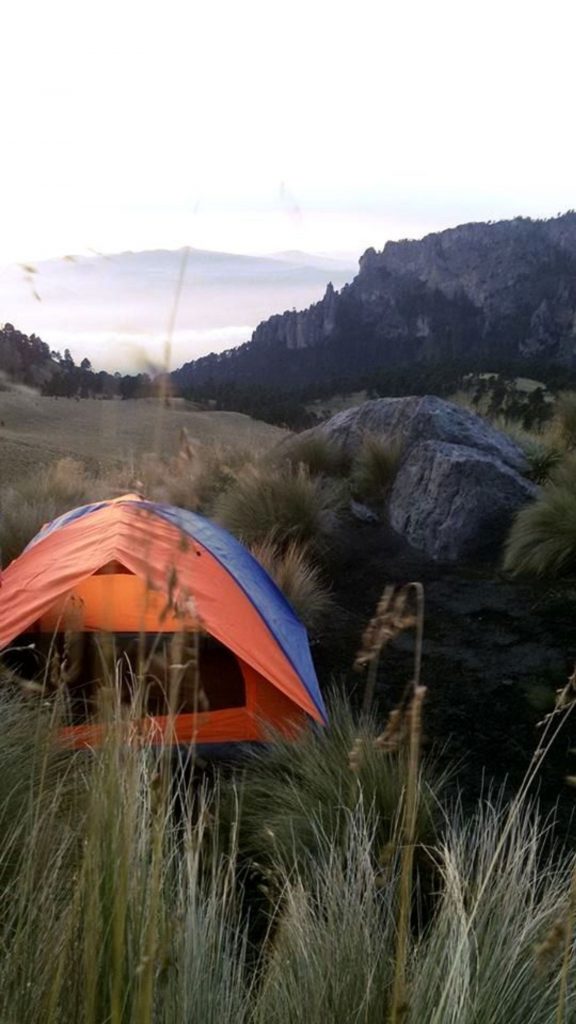
2. Explore the surroundings!
This, of course, does not apply to paid camping sites, where the men with flashlights take care of everything. We can advise how to find the right, free-of-charge camping place on your own. One of the most important conditions is to thoroughly explore the surroundings. A good time before pitching up the tent it’s best to observe what’s really going around. Of course, you cannot predict when and whether a thief or an angry policeman would come, but still, you can evaluate the overall situation. For some time just sit and observe the crowd that walks around. If there is a lot of curious eyes and suspicious types, they certainly won’t disappear later. In this case, look for a quieter spot.
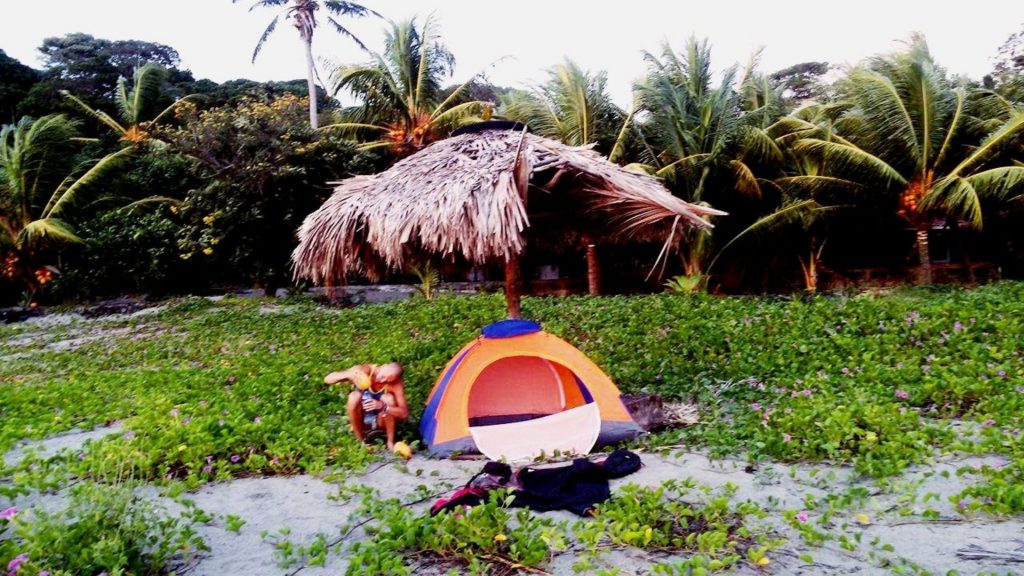
3. Explore the site itself!
It’s better to look for a camping place while it’s still light outside because at night some important things can be left unnoticed. You should check whether the beautiful greenery does not hide some grass sprinklers which also have surprised us. You should check if the grass doesn’t consist of sharp thorns which later will hurt your sides. Check the land from which suddenly a bunch of ants can appear. And they will definitely try to get into the tent. Sometimes the insects are so small that you won`t be able to guess what has bitten you during your sleep.
4. Take into consideration your location!
If you set up the tent on the beach by the ocean, it’s important to remember that the water level is often rising at night, so don’t build the tent close to the water, so that you don’t wake up in a giant bath.
In countries where the snakes live (for example, in the south of Mexico) the locals themselves will advise you to look for a place above the ground because these reptiles feel the heat coming out of the tent and can try to join in. Of course, in the beginning, we didn’t know that – nothing prevented us from staying on the ground and nothing bad happened, but this is a thing worth considering. You should also remember that tropical countries are hot and humid – sleep with an open tent, bet never leave the mosquito net open!
In turn, in the mountains, you can really freeze – remember that at a very high altitude, it’s not possible to make a fire!
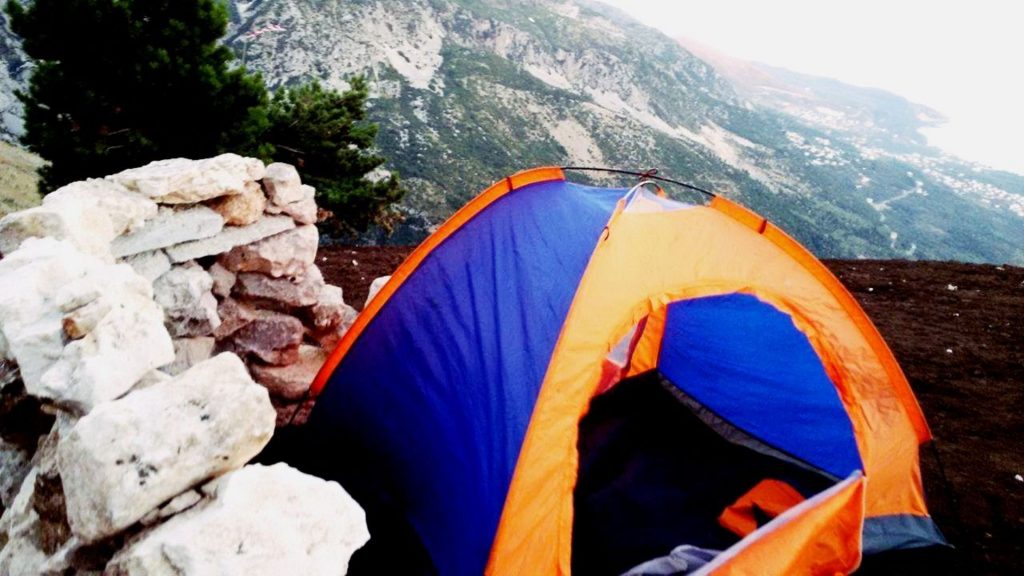
5. Set up the tent carefully!
It’s better to pitch the tent in an already explored area when it’s dark – then it’s less possible that unexpected passerby will spot it. You can also put some sticks around the tent – if someone decides to visit you at night, breaking brunches under the curious feet can wake you up from sleep and allow you to prepare for the guest. But before that, after the tent is built, you need to take some time and listen to what’s going on around, because maybe someone just waits until you get into the tent. This happened to us as well – one guy was waiting for us in the shadows in Argentina, but at that time we had already learned how to take care of our safety, and we could surprise the youngster ourselves!
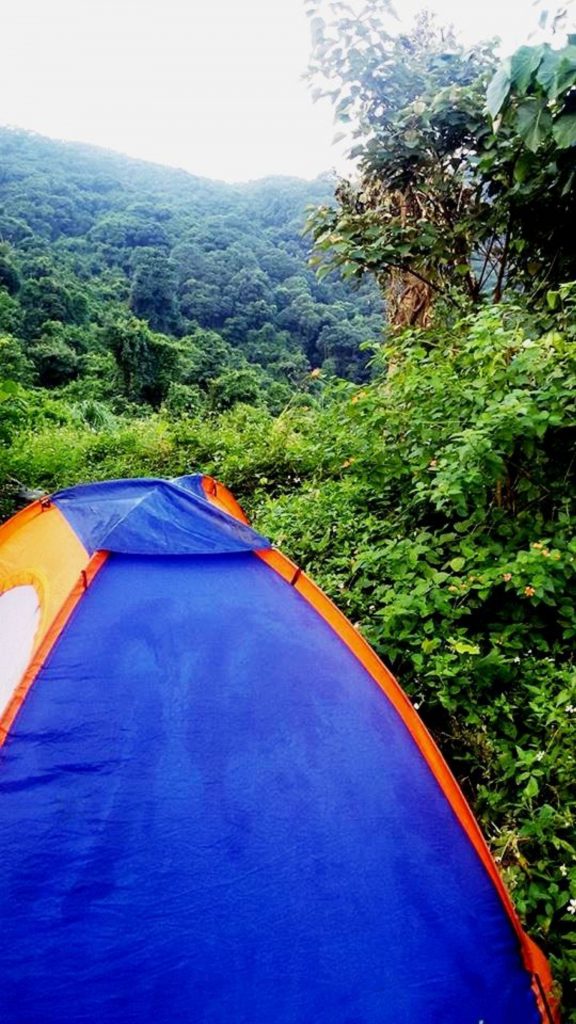
6. No dinner in the tent!
Although it seems that camping fits together with campfire and barbecue, it is not wise at all. It’s important to remember that you shouldn’t eat near the tent or inside it. Animals have a more developed smell than us – even if it seems that all the yummy aromas have gone away, they actually remain long and attract furry guests. Fortunately for us, this happened only once, when the boar made its evening walk near our tent. From that time we promised ourselves never to eat in the tent or near it.
Also, the food itself should not be kept in the tent. In the United States, for example, there are special stone boxes for placing the food in. An alternative is to put the food in a bag and pull it up in the tree. Of course, there is a risk that someone will eat the content of the bag, but at least you will protect yourself.
7. Always be ready!
Before going to sleep, think about ways to protect yourself if anything happens. Sometimes it’s safer when one stays awake while the other is sleeping if there are two of you. Although often long hikes with heavy backpacks are so tiring, that it’s not even clear if someone had visited during the night or not.
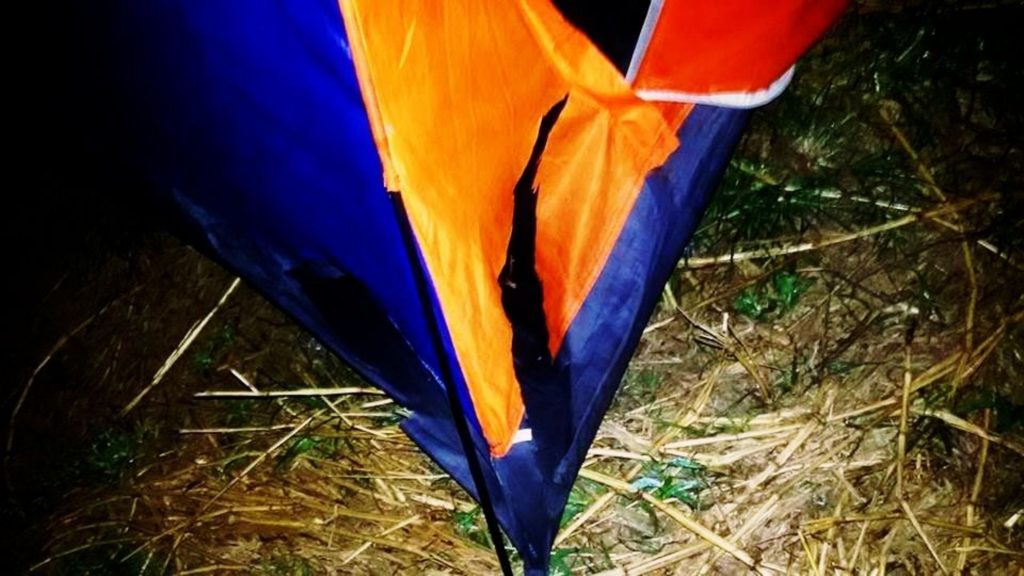
8. Do not stay in one place for several nights in a row!
Of course, there are safe parts of the world, and it would not be difficult to stay by the lake in Latvia for a whole week! However, you should remember that there may be someone with not very good intentions and that someone might notice permanent residents of the tent, far from communications, in the forest or in the jungle. And that someone may also start thinking about how to use such a situation. So let’s not give anyone a reason to overthink, and let`s change the sleeping place!
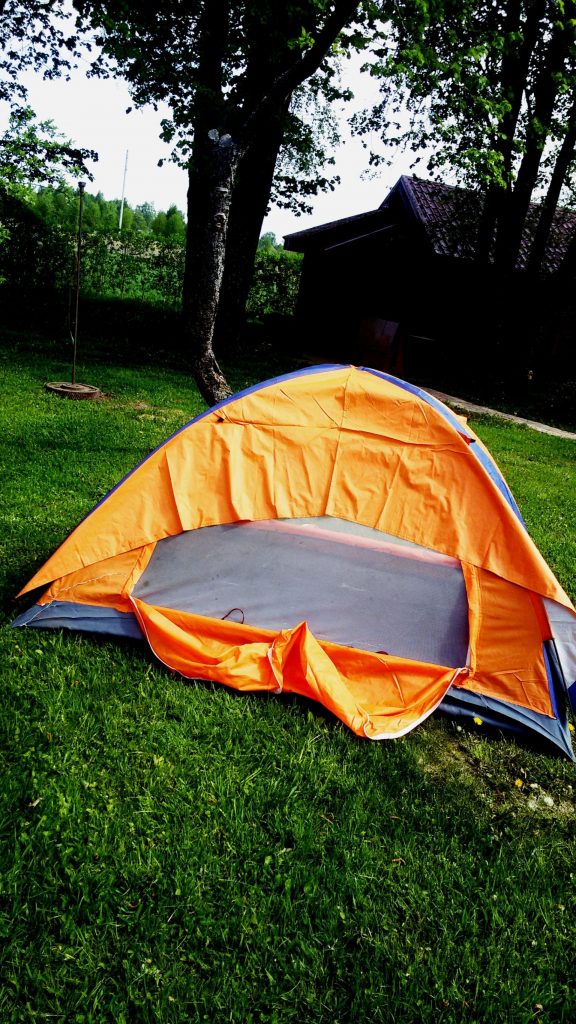
In general, we could write poetry and songs to our tent – it gave us home in all parts of the world. And it lasted surprisingly long! It was sewed, soaked, ripped, and again sewed, it served us a year and a half! And we brought it home to Latvia with small grains of sand from every corner of the world!
Of course, it was not always easy for us to find a comfortable camping place. Sometimes it was so difficult that we were just happy to be able to sleep horizontally. No, we did not have any yoga mats or mattresses. Only a tent and sleeping bags. Sometimes it was hard, uncomfortable, but after all – oh, without this experience we could never appreciate how good it is to sleep in a bed!
Well, we hope that these suggestions will help a nature lover, a slightly more extreme traveler who is ready to take a step outside the campsite and think about his/her own safety. Good luck!